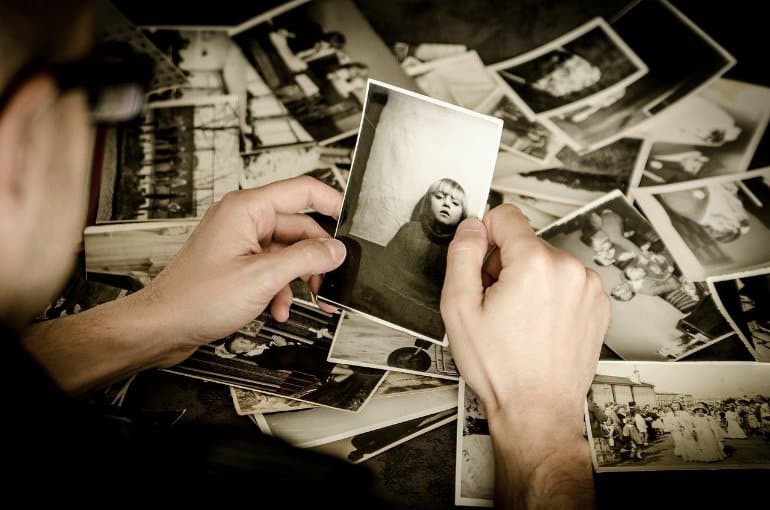Summary: Researchers have developed new techniques that can correct false memory recollections without damaging true autobiographical memories.
Source: University of Portsmouth
Rich false memories of autobiographical events can be planted – and then reversed, a new paper has found.
The study highlights – for the first time – techniques that can correct false recollections without damaging true memories. It is published by researchers from the University of Portsmouth, UK, and the Universities of Hagen and Mainz, Germany.
There is plenty of psychological research which shows that memories are often reconstructed and therefore fallible and malleable. However, this is the first time research has shown that false memories of autobiographical events can be undone.
Studying how memories are created, identified and reversed could be a game changer in police and legal settings, where false memories given as evidence in a courtroom can lead to wrongful convictions.
According to Dr Hartmut Blank, co-author of the research from the University of Portsmouth’s Department of Psychology, “believing, or even remembering something that never happened may have severe consequences. In police interrogations or legal proceedings, for instance, it may lead to false confessions or false allegations, and it would be highly desirable, therefore, to reduce the risk of false memories in such settings.
“In this study, we made an important step in this direction by identifying interview techniques that can empower people to retract their false memories.”
The researchers recruited 52 participants for a study on ‘childhood memories’ and with the help of parents, they implanted two false negative memories that definitely didn’t happen, but were plausible. For example getting lost, running away or being involved in a car accident.
Along with two true events, which had actually happened, participants were persuaded by their parents that all four events were part of their autobiographical memory.
The participants were then asked to recall each event in multiple interview sessions. By the third session, most believed the false events had happened and – similar to previous research – about 40 per cent had developed actual false memories of them.
The researchers then attempted to undo the false memories by using two strategies.

The first involved reminding participants that memories may not always be based on people’s own experience, but also on other sources such as a photograph or a family member’s narrative. They were then asked about the source of each of the four events.
The second strategy involved explaining to them that being asked to repeatedly recall something can elicit false memories. They were asked to revisit their event memories with this in mind.
The result, according to Dr Blank, was that “by raising participants’ awareness of the possibility of false memories, urging them to critically reflect on their recollections and strengthening their trust in their own perspective, we were able to significantly reduce their false memories. Moreover, and importantly, this did not affect their ability to remember true events.
“We designed our techniques so that they can principally be applied in real-world situations. By empowering people to stay closer to their own truth, rather than rely on other sources, we showed we could help them realise what might be false or misremembered – something that could be very beneficial in forensic settings.”
About this memory research news
Source: University of Portsmouth
Contact: Sophie Wagstaff – University of Portsmouth
Image: The image is in the public domain
Original Research: Closed access.
“Rich false memories of autobiographical events can be reversed” by Aileen Oeberst, Merle Madita Wachendörfer, Roland Imhoff, and Hartmut Blank. PNAS
Abstract
Rich false memories of autobiographical events can be reversed
False memories of autobiographical events can create enormous problems in forensic settings (e.g., false accusations). While multiple studies succeeded in inducing false memories in interview settings, we present research trying to reverse this effect (and thereby reduce the potential damage) by means of two ecologically valid strategies.
We first successfully implanted false memories for two plausible autobiographical events (suggested by the students’ parents, alongside two true events). Over three repeated interviews, participants developed false memories (measured by state-of-the-art coding) of the suggested events under minimally suggestive conditions (27%) and even more so using massive suggestion (56%).
We then used two techniques to reduce false memory endorsement, source sensitization (alerting interviewees to possible external sources of the memories, e.g., family narratives) and false memory sensitization (raising the possibility of false memories being inadvertently created in memory interviews, delivered by a new interviewer). This reversed the false memory build-up over the first three interviews, returning false memory rates in both suggestion conditions to the baseline levels of the first interview (i.e., to ∼15% and ∼25%, respectively).
By comparison, true event memories were endorsed at a higher level overall and less affected by either the repeated interviews or the sensitization techniques. In a 1-y follow-up (after the original interviews and debriefing), false memory rates further dropped to 5%, and participants overwhelmingly rejected the false events.
One strong practical implication is that false memories can be substantially reduced by easy-to-implement techniques without causing collateral damage to true memories.







